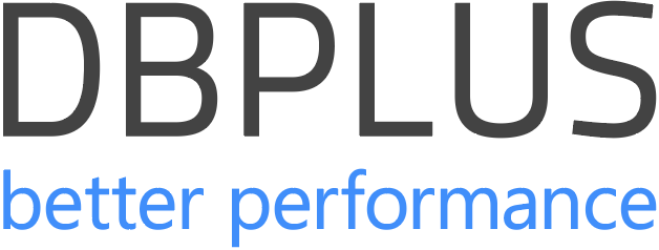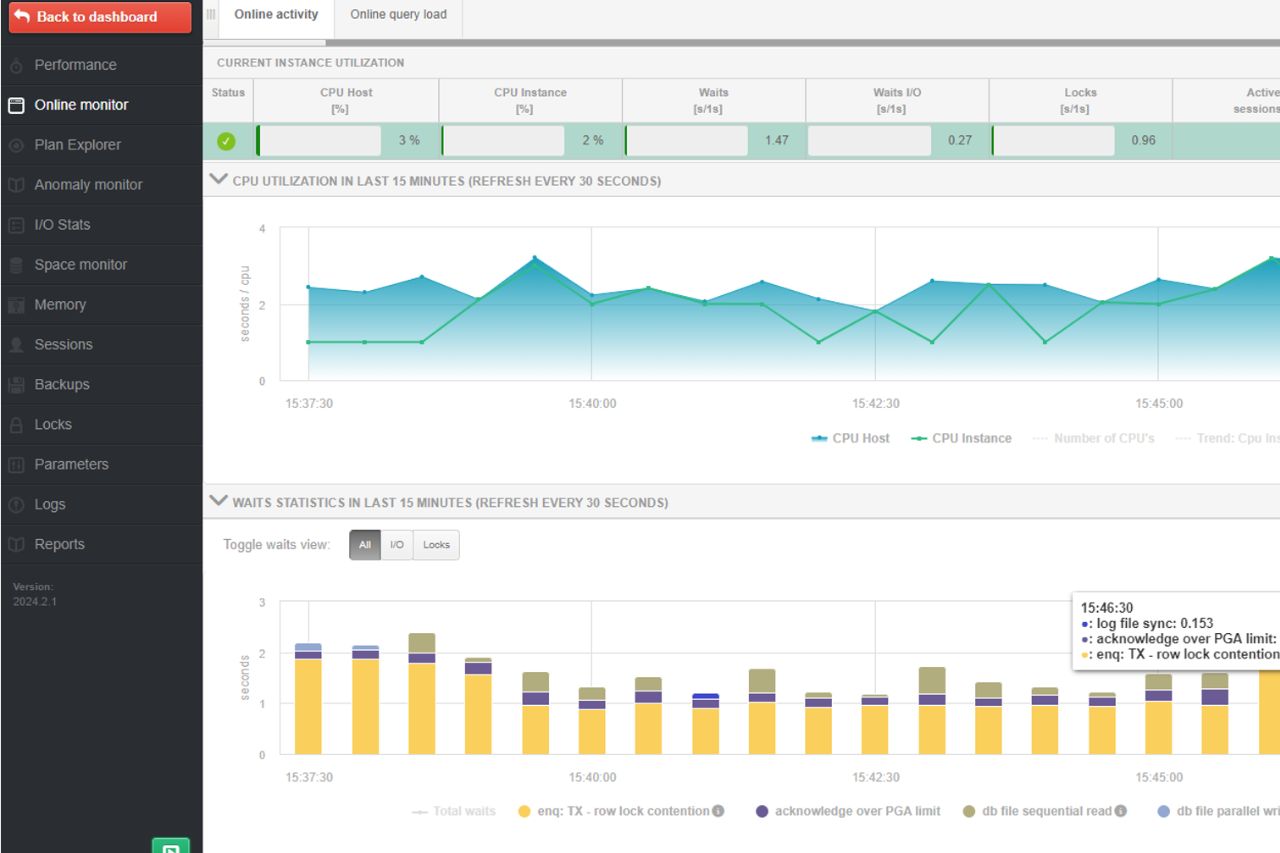11/07/2024
Breaking Down Distributed Databases: How Do They Work? When to Use Them?
Distributed databases—by storing data across a whole set of physical locations— allow organizations to manage data across multiple geographical locations with the semblance of a single unified system. What can companies gain with this choice?
04/07/2024
Execution Plan Changes in SQL Server: Reasons and Solutions
Executions plan—complex maps charted by the SQL Server optimizer, dictate the most efficient route for data retrieval. However, the plans are not static. They morph and adapt, influenced by a host of factors ranging from data volume changes to system upgrades. Each of the execution plan changes in SQL Server has the potential to sway performance dramatically.
Understanding the reasons behind these shifts, and more importantly, how to effectively manage them translates to maintaining optimal performance in SQL Server environments.
27/06/2024
The Domino Effect in the T10 Database on g1rush Server
Performance issues rarely occur in isolation. Often, a single problem can trigger a cascade of related issues, each compounding the overall impact on the system. This case study explores such a scenario in the T10 database on the g1rush server.
20/06/2024
From Analysis to Action: Overcoming Execution Plan Changes
Execution plans choose the way in which SQL queries are executed by the database engine. As such, they are a difference between a smoothly running database and one that stumbles under load. Sometimes, an execution plan changes, for various reasons—often silently and without warning—and the far-reaching fallout can be huge.
The most immediate impact seen as the execution plan changes is a decline in query performance. A query that once ran smoothly in milliseconds might, due to an altered plan, start consuming seconds. This increase in query time can cascade into longer load times for applications, frustrated end-users, and severe financial repercussions in high-stakes environments such as financial trading platforms or real-time data services.
13/06/2024
PostgreSQL vs Oracle: Choose the Right Database for Your Needs
PostgreSQL vs Oracle — an open-source framework that champions adaptability and accessibility versus a proprietary system designed for high throughput and scalability in enterprise environments. These two database systems, while both engineered to manage vast amounts of data, diverge significantly in their approach, philosophy, and intended user base.
PostgreSQL is a community-driven, flexible model that supports customization and supports innovation, making it ideal for entities that value agile and cost-effective solutions. Oracle, in contrast, targets large-scale operations with its performance-oriented architecture that ensures reliability and robustness under heavy loads.
27/08/2019
DBPLUS will perform at a meeting organized by the Warsaw PostgreSQL Users Group
On October 10, 2019 in Warsaw at 5 Kolejowa Street, DBPLUS together with Goldenore and EnterpriseDB will talk about PostgreSQL…
16/07/2019
DBPLUS on “IT Tage” in Frankfurt
“Everything under one roof!” is the motto of the IT-Days 2019 from December 9th to 12th in the Cape Europa,…
03/07/2019
CIOs will talk about database performance
Optimizing database performance and matching IT architecture to real-time data processing will be the theme of this year’s edition of…
05/04/2019
DBPLUS at the mbuf congress in Karlsruhe
Congress is a meeting of nearly 200 member companies from the IT industry and a popular network platform. Mbuf is…
28/12/2018
SQL Saturday in Linz, Austria
SQLSaturday is an all-day conference and training event which is taking place Friday, January 18, 2019 for the sixt time…
20/02/2025
Key Metrics for Reliable Database Replication
Database replication sounds simple enough: take data from one place and make sure it appears somewhere else, quickly and correctly. But anyone who’s spent time monitoring and troubleshooting replication knows it’s anything but straightforward. Networks fail, logs get backed up, and suddenly your secondary database is minutes (or hour) behind.
That’s why replication metrics matter.
13/02/2025
ORA-00904: Invalid Identifier in Oracle Databases
When you’re working with Oracle databases, some errors pop up so regularly that DBAs almost recite them in their sleep. ORA-00904: invalid identifier is certainly one of those classic offenders. On the face of it, ORA-00904 indicates you’ve referenced a column or other identifier that Oracle can’t locate or doesn’t consider valid. Straightforward enough—maybe there’s a simple typo, or a missing column in your table. But there are subtler corners of Oracle that can trigger the same error even when you think you’ve done everything right.
30/01/2025
Achieve Database Optimization Without Abandoning Normalization
High concurrency, scattered queries, unpredictable data growth—the usual suspects. When everything’s slow and your tables are bursting, you face a tough choice: enforce strict normalization for pristine data integrity or optimize aggressively to wring out every last drop of performance. Overly normalized schemas may lead to a maze of joins and hamper speed under heavy loads. Performance-driven shortcuts—like denormalizing key data—can bloat storage and complicate updates. Balancing database optimization and normalization isn’t always straightforward, but it is possible.
23/01/2025
Database Performance Tuning – the Sensible Way: Collaborative Strategies, Clear Metrics, and Tested Changes
Databases are either the invisible workhorse that keeps everything running smoothly or the ticking time bomb that wakes you at 3 a.m. with catastrophic slowdowns. There’s rarely a middle ground. Performance tuning makes all the difference—especially when you combine actual metrics, meaningful collaboration, and a dash of common sense. A few checks here and there can save hours of panic later on, and nothing beats a stable, responsive system for making you look like the hero of the IT team.
Of course, it helps to have a reliable way to see what’s going on under the hood while performance tuning, keep everyone on the same page, and avoid applying fixes blindly. After all, a well-tuned database is happier, and so are the people who rely on it every day.
09/01/2025
Performance Monitor 2024.4: What’s New
Managing database performance is rarely straightforward, and the demands only keep multiplying. In response, DBPLUS Performance Monitor 2024.4 introduces new features that help you see exactly how queries behave across different platforms, track CPU usage at a glance, refine how and when alerts reach you, and unify session data.
If you prefer a monitoring tool that shows critical insights with less hassle, the latest version deserves your attention.
06/07/2018
DBPLUS partner webtelligence on SQLSaturday in Paris
On July 7, 2018, the sixth Microsoft Data User Community meeting in France will take place. Participants will meet in…
12/06/2018
webtelligence at SOUG Day in Baden, Switzerland
The meeting of the Swiss community of Oracle users will take place on June 14, 2018. Our partner webtelligence will…
15/05/2018
A new DBPLUS Client in Austria
In May 2018, webtelligence, a German business partner of DBPLUS, began implementing the DBPLUS Performance Monitor solution for MS SQL…
16/04/2018
Another success for DBPLUS in the German market
On April 12, 2018, we began implementing the DBPLUS Data Replicator solution for the customer in the financial sector in…
03/01/2018
DBPLUS at SQLSaturday #679 in Vienna
SQLSaturday is an all-day conference and training event which is taking place in 2018 for the fifth time in Austria….
14/11/2024
What’s New in DBPLUS Performance Monitor 2024.3
In the latest update of DBPLUS PERFORMANCE MONITOR, version 2024.3, we’re rolling out exciting enhancements and brand-new features. All are designed to elevate your database monitoring and management capabilities to the next level.
From real-time online monitoring improvements to smarter notification systems, we’re excited to walk you through what’s new, what’s better, and how these changes can make a big difference in managing your databases.
22/08/2024
Performance Monitor Changes in Version 2024.2—Part I: Online Monitor
Statistics can lie—” The only statistics you can trust are those you falsified yourself” This old adage attributed to Sir Winston Churchill rings especially true if you’re dealing with daily database monitoring. When data is only captured in 15-minute intervals, transient issues that can severely impact performance might slip through the cracks, unnoticed and unaddressed until they’ve already caused significant problems.
In the newest release of the DBPLUS PERFORMANCE MONITOR, we’re extremely excited to show you the solution that the new functionality brings to the table.
04/04/2024
Performance Monitor (Release 2024.1)
In April 2024, we published another version of the Performance Monitor for Oracle, Microsoft SQL Server, PostgreSQL, and SAP Hana…
24/01/2024
New version Performance Monitor (Release 2023.4)
In December 2023, we released the next version of Performance Monitor application for Oracle, Microsoft SQL Server, PostgreSQL and SAP…
05/07/2023
New version Performance Monitor (Release 2023.2)
On July 5, 2023, we released a new version of Performance Monitor for Oracle, Microsoft SQL Server, PostgreSQL and SAP…

























